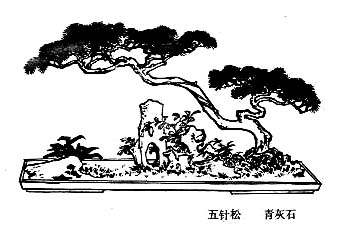論
語
Lun Yu 
 – The Analects of Confucius
– The Analects of Confucius
The Master discusses with his disciples and unveil his preoccupations with society. Tr. Legge (en), Lau (en) and Couvreur (fr).
Lunyu XI. 22. (289)
An instance in Tsze-lû and Zan Yû of how Confucius dealt with his disciples according to their characters.
Tsze-lû asked whether he should immediately carry into practice what he heard. The Master said, "There are your father and elder brothers to be consulted;– why should you act on that principle of immediately carrying into practice what you hear?" Zan Yû asked the same, whether he should immediately carry into practice what he heard, and the Master answered, "Immediately carry into practice what you hear." Kung-hsî Hwâ said, "Yû asked whether he should carry immediately into practice what he heard, and you said, 'There are your father and elder brothers to be consulted.' Ch'iû asked whether he should immediately carry into practice what he heard, and you said, 'Carry it immediately into practice.' I, Ch'ih, am perplexed, and venture to ask you for an explanation." The Master said, "Ch'iû is retiring and slow; therefore I urged him forward. Yû has more than his own share of energy; therefore I kept him back."
Legge XI.21.
Tzu-lu asked, 'Should one immediately put into practice what one has heard?' The Master said, 'As your father and elder brothers are still alive, you are hardly in a position immediately to put into practice what you have heard.'
Jan Yu asked, 'Should one immediately put into practice what one has heard?' The Master said, 'Yes. One should.'
Kung-hsi Hua said, 'When Yu asked whether one should im- mediately put into practice what one had heard, you pointed out that his father and elder brothers were alive. Yet when Ch'iu asked whether one should immediately put into practice what one had heard, you answered that one should. I am puzzled. May I be elightened?'
The Master said, 'Ch'iu holds himself back. It is for this reason that I tried to urge him on. Yu has the energy of two men. It is for this reason that I tried to hold him back.'
Lau [11:22]
Tzeu lou dit à Confucius : « Dois-je mettre en pratique immédiatement ce que je viens d'apprendre ? » Le Maître répondit : « Tu as encore ton père et des frères plus âgés que toi1. Conviendrait-il de mettre aussitôt à exécution tout ce que tu apprends d'utile ? » Jen Iou demanda aussi s'il devait mettre en pratique sans retard tout ce qu'il apprenait. Le Maître répondit : « Fais-le tout de suite. »
Koung si Houa dit : « Iou a demandé s'il devait mettre aussitôt à exécution tout ce qu'il apprenait d'utile à faire. Vous lui avez répondu qu'il avait encore son père et des frères plus âgés que lui. K'iou a adressé la même question dans les mêmes termes. Vous avez répondu qu'il devait mettre en pratique sur-le-champ tout ce qu'il apprenait. Quant à moi, je suis perplexe ; j'ose vous prier de me l'expliquer. » Confucius dit : « K'iou n'ose pas avancer ; je l'ai poussé. Iou a autant d'ardeur et de hardiesse que deux ; je l'ai freiné. »
Couvreur XI.21.

The Analects of Confucius – Lun Yu XI. 22. (289) – Chinese on/off – Français/English
Alias the Lunyu, the Lun Yü, the Analects, les Entretiens du maître avec ses disciples.
The Book of Odes, The Analects, Great Learning, Doctrine of the Mean, Three-characters book, The Book of Changes, The Way and its Power, 300 Tang Poems, The Art of War, Thirty-Six Strategies
Welcome, help, notes, introduction, table.
Index – Contact – Top























